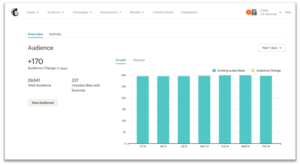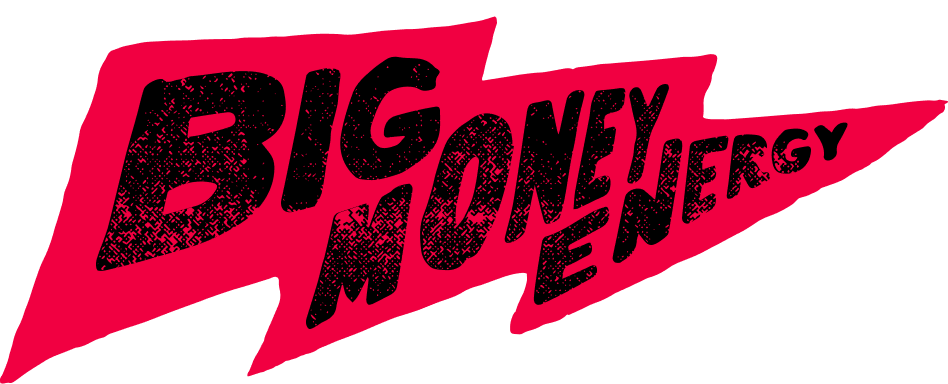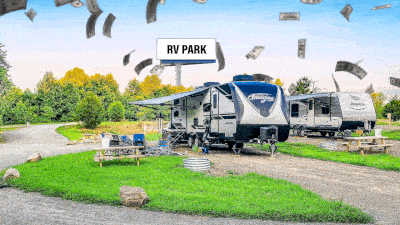
Even if spending hours behind the wheel with your kids fighting in the back doesn’t sound like your jam, you might want to spend some time getting to know the RV industry.
Here are some fast facts on why an RV park could be your next investment:
- There were 62% more RV owners in 2021 than in 2001
- Over 11 million people own RVs in the U.S.
- Nearly one-third of RV owners are first-time owners
- RV park ownership is very fragmented (no conglomerates scooping up locations)
- Over 25% of the $140 billion RV market goes to campgrounds and travel
- RV park bookings generate consistent hands-off cash revenue with an operator onsite
Understanding the Basics of the RV Park Business
To succeed with an RV park, you need a basic idea of how they work. Spots in an RV park rent on a nightly, weekly, or monthly basis.
RV parks aren’t just for road-tripping families. Construction workers on special projects and traveling nurses might also need a space to stay.
Cater to RV users who want more than just a place to park the vehicle if you want solid cash flow.
RV parks generate income in a few ways:
- Higher daily/weekly rates for temporary stays
- Monthly rates for longer stays
- Upgrades/amenities onsite, like meals or vending machines
- Recreation equipment rentals
- Special events
- Shower or laundry service
- Renting vehicles
- Storage costs for RVs not on an active site
Buying land to build your own RV park comes with a hefty price tag and a long turnaround time for profits. Finding an existing RV park enables you to invest in upgrades and add-ons that make the park desirable much more quickly.
If you want a real-life example, check out how Kenworth from South Carolina bought a park for $400K and turned it into a $15.3K per month business:
Profitable RV parks:
- Have consistent bookings, preferably for long-term stays
- Are located in the region of some kind of attraction or travel destination
- Deliver more than just a “place to park”
People want to rent or buy RVs to travel with them. There’s a shortage of places to park them, and that’s a dream scenario for someone who owns an RV park.
RV parks are ideal since they come with high-income potential and limited overhead costs. If you hire an onsite operator, they also can reduce major headaches for you as the investor.
You can always keep investing in making your RV park a destination in and of itself. The potential for expansion and growth is big.
Steps to Buying an RV Park
Investing in an RV park requires 4 basic steps:
- Finding profitable RV parks for sale
- Evaluating the profit potential and risks
- Financing the investment
- Closing the deal
Lean into the first two steps. Not all RV parks are created equal. Finding the right property makes it easier and faster to generate profit.
1. Finding Profitable RV Parks for Sale
Not every RV park is ideal from an investment perspective. While the industry is still relatively young, think smart about where you buy now with growth potential in mind.
A simple step to start is telling people you meet that you’re looking to buy a business. You never know when someone owns or knows someone who has an RV park they want to offload.
You can also check out real estate sites like Campground Marketplace, Parks and Places, or BizBuySell, meetups, and online platforms to learn more about parks already on the market.
We like to use BizScout. They can find all the RV parks in your local area including the contact information you’ll need to reach out to the people who work there. (Full disclosure: we own BizScout, but created it to make searching for businesses like RV parks easier.)
Don’t overlook the obvious: start looking for RV parks in an area of interest to you. You’ll get a feel for the supply in the area. Once you find a gem, look for similar locations.
Follow these steps:
- Pick an area you’re familiar with
- Stay at the location in an RV or visit during the day
- Talk to people staying there
- Talk to the owner
- Look up online reviews of the site
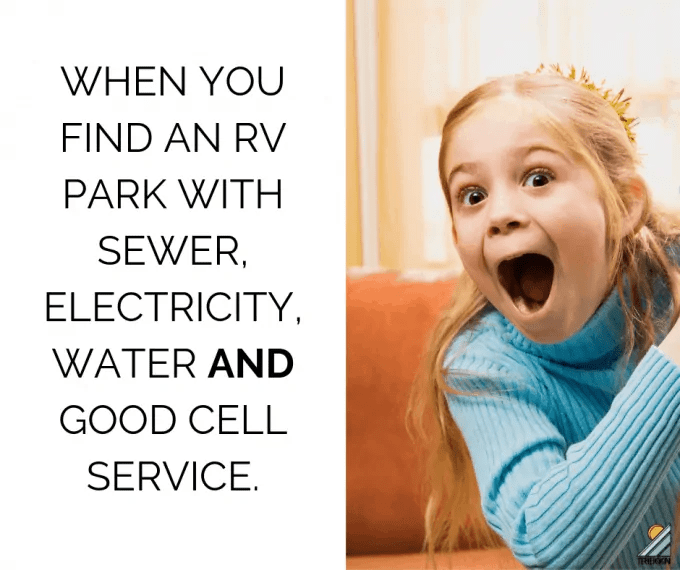
Just because something’s not on the market yet doesn’t rule it out. Scope out all RV parks within your region or a region you’re looking to make a purchase online first, then plan a day trip. Consider approaching an active RV park to see if there’s interest in a future sale.
2. Evaluating the Profitability and Potential Risks
Don’t try to make a deal before you know the numbers. If you’re new to the RV world, it’s well worth staying at the park and checking out regional competitors, too.
This gives you an honest perspective on pricing and potential amenities that could allow you to bump up your revenue should you buy.
Look at the following details during your research:
- Location
- Existing amenities
- Space/potential for other amenities
- The competition
- Opportunity for your “unfair advantage”
- Average bookings/travel in the region (hotel occupancy, AirBnB, etc.)
With location, you need something outside major cities and attractions but close enough to draw people in. Avoid crime-ridden areas and look for up-and-coming hot spots.
An ideal location might be a region in which the housing demand outstrips the supply.
You need a spot with some existing amenities like a pool, playground, food trucks, or cafes that draw people in and increase your park’s value.
You also need to know who the competition is, what they charge, what they’re booking, and how you’ll position yourself uniquely.
Finally, make sure the average bookings back up what you found about the location. Verify that people want to travel to this area and that there’s a need for an upgraded RV park.
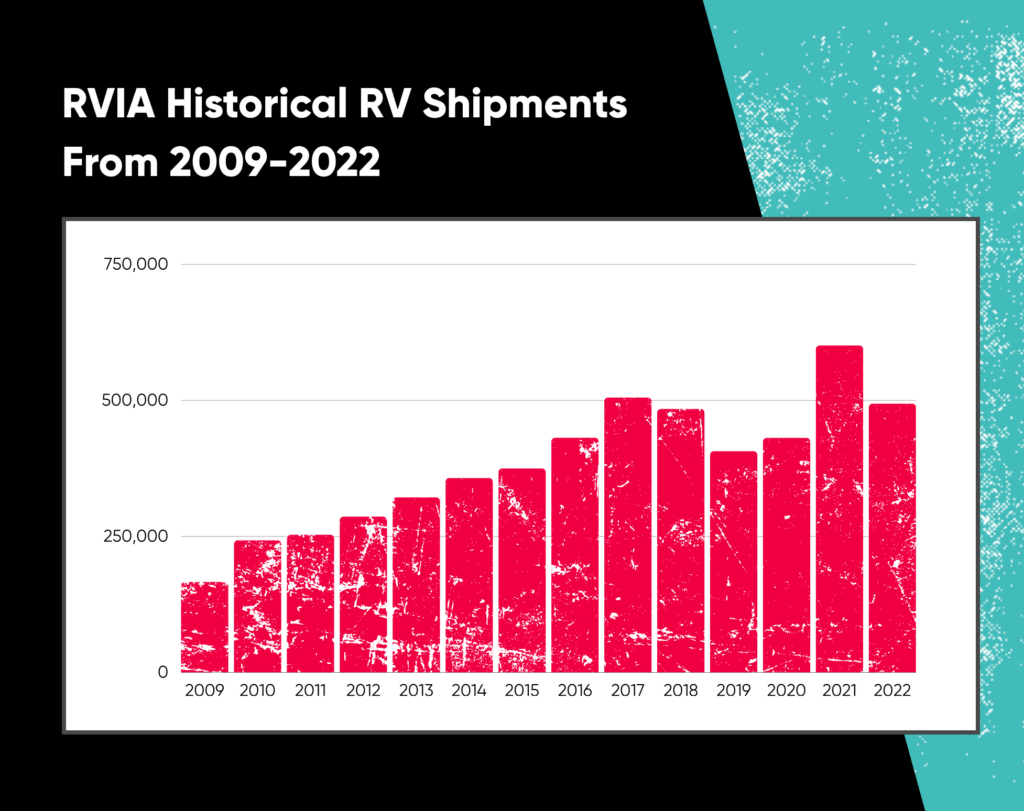
An initial sweep might reveal some promise, but don’t stop there. Conduct thorough due diligence. Ask about bookings and revenue. Does it net enough to pay you and an operator?
Stay for a few weeks and monitor foot traffic. Is the front office getting calls? Is it booked out weeks in advance? Are there any common complaints from people staying there?
Talk to other people in the park and owners of competing sites. Ask people why they stay there and what they do and don’t like.
If this is your first purchase, you may want a neutral third party to help you, too. Get a professional appraisal so you and the seller are on the same page. All this sets you up to make an offer backed by data.
Avoid these red flags:
- Low average length of stay
- Bookings based on temporary area demands (i.e., construction projects)
- Expensive areas already fully built-up
As with any business, plan for potential challenges. You can expect seasonal fluctuations in business. People road trip more in the summer when kids are out of school. If your RV park is somewhere people don’t visit during winter months, account for that in your budgeting. If that’s the case, aim to get top dollar in your busy months and use the off-season for maintenance and upgrades.
Do not try to take on the maintenance and operations issues yourself. Hire an onsite manager or business operator from day one.
If at all possible, keep the existing owner or operator on board for several months for a smooth transition that keeps you out of the day-to-day operations as much as possible.
Hiring a great operator is one of the most important things you can do to protect your financial investment in the park. Expect to pay well for good onsite support and operations help. You may allow them to live onsite rent-free and also pay them a salary.
Don’t forget to research local regulations and ordinances.
Be mindful of things like long-term vs. short-term rental rules and noise issues for surrounding neighbors. Even if you research these things before you purchase, keep tabs on the relevant government agencies that may change these rules in the future.
3. Financing Your RV Park Investment
There are three main options for financing the purchase of an RV park:
- Cash/private loans (your cash or cash you raise)
- SBA loans
- Seller financing
Seller financing and private lenders are always an option for buying an RV park, but bankability is important. If you can convince the lender there’s a good investment, you’ll get the best terms (like a 10% down payment and good interest rates.) That means more cash flow coming back to you.

SBA 7(a) loans are popular for aspiring RV park owners because these funds come with low down payment options and flexible rates.
A creative solution to getting your hands on purchase funds is exploring seller financing. In these situations, you borrow from the seller of the RV park either alone or in addition to bank-borrowed funds. You pay back the seller over time until you own the park.
If you’re borrowing to make this park a reality, write a solid business plan. Show you’ve done your research, and don’t overinflate your numbers.
Don’t count on the lender to know the market. Make it crystal clear to them that this is a no-brainer.
Get creative. You don’t need money for every deal.
4. Negotiating and Buying the Property
Here’s where all the prior research pays off for buying an RV park.
Make your case to the RV park owner not just with the data but with what makes this a win for them.
A burned-out owner-operator has different motivations from someone who feels like they’ve got a cash cow on hand.
Come to the table with options, not outcomes, in mind.
Always ask for what you want. The worst they can say is no, but you will open the negotiation conversation.
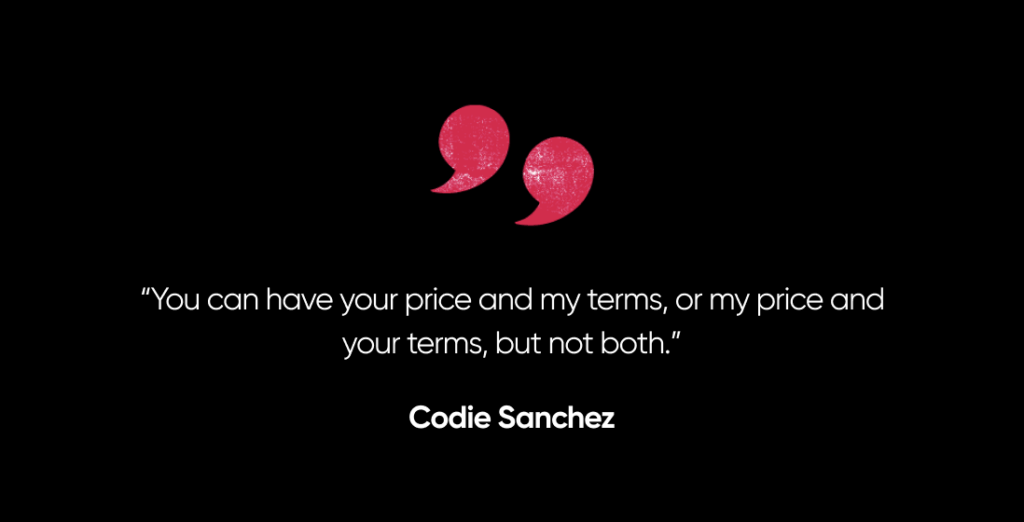
Control the terms and control the deal. As Codie Sanchez always says, “You can have your price and my terms, or my price and your terms, but not both.”
As always, get someone to double-check your financial data and projections. Hire a business lawyer to help you with the documents for the sale.
Operating and Growing Your RV Park Investment
If you did your homework right in the first two steps, your property should have growth opportunities to maximize your income.
Most RV parks undercharge and don’t provide extra services. Add-ons like charging stations, lighting, and sewage may add value and profit potential to your park.
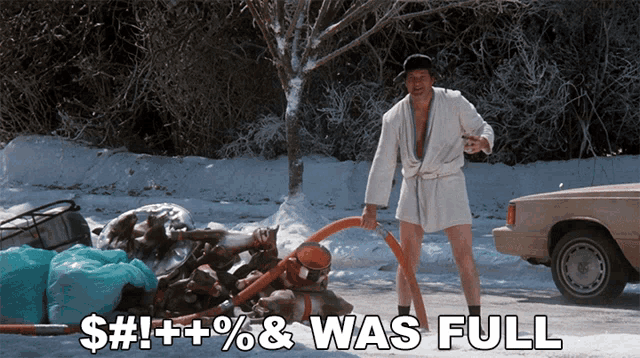
Tap into the power of marketing the RV lifestyle itself. Think freedom, relaxation, exploration, and family time. Your park is a great place for people to crash after a long day out, but it’s so much more.
Families and other RV travelers love adventure, but adding WiFi or a great swimming pool can up the ante for long-term visitors. These aspects of hotel and resort stays port over well to an RV park and draw in people looking for a one-stop shop.
Stay on top of regular maintenance and improvements to keep customers coming. Invest in quality photography that entices travelers. Get more bookings by pushing current customers to leave reviews.
Long-Term RV Rental Bookings = Long-Term Cash Flow
With a solid location and the right onsite manager, an RV park is a great entry into the world of cashflowing boring businesses.
With a boom in the RV market, more people are renting or buying them and need more places to stay.
Existing RV parks might have the basics. Buying one and upgrading the location boosts bookings and generates consistent cash flow for you.
Don’t skimp on the research phase when buying an RV park. You’ll thank yourself later.



